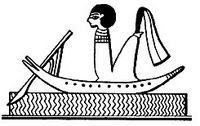"Living without enemies" is a challenge
― Thomas Moore
Read "Walk with Your Enemy", a piece by Thomas Moore in Life Positive, October 2005. In this contribution, Moore writes,
"It's the business of religion to turn things upside down. Indeed, the proper language of religion is paradox. Many people think of spirituality as a higher level of the world they know, but the traditions teach that as a person matures, he has to learn about the opposite side of everything he has come to understand. Jesus suggests that the poor are the really rich ones. And according to current Biblical scholars, the story of the Good Samaritan is not just about seeing your neighbor in someone from another culture or race. It shows that the most unlikely and despised people, not we spiritual types, may be the very ones practicing spiritual ideals like compassion. In religion, the whole world is upside down."Moore’s new book Writing in the Sand, about the soul of the Gospels, will be released in May 2009.
...
"The paradoxes of religion and the spiritual traditions are not just intellectual surprises; they are a challenge for you to move in a direction that may be far different from the one you know and love. They ask you to have it in mind to consider the opposite of what may seem common sense, or the opposite to what has identified you for years. The flipping over of your vision, metanoia, may be the most difficult thing in life."
Labels: Thomas Moore, Writing in the Sand




